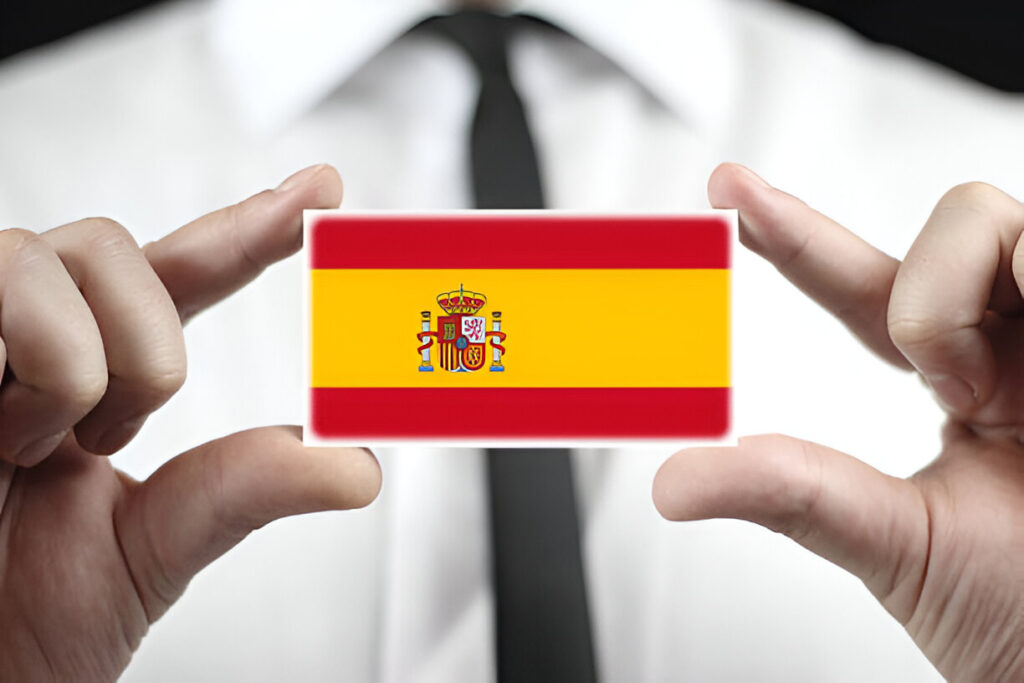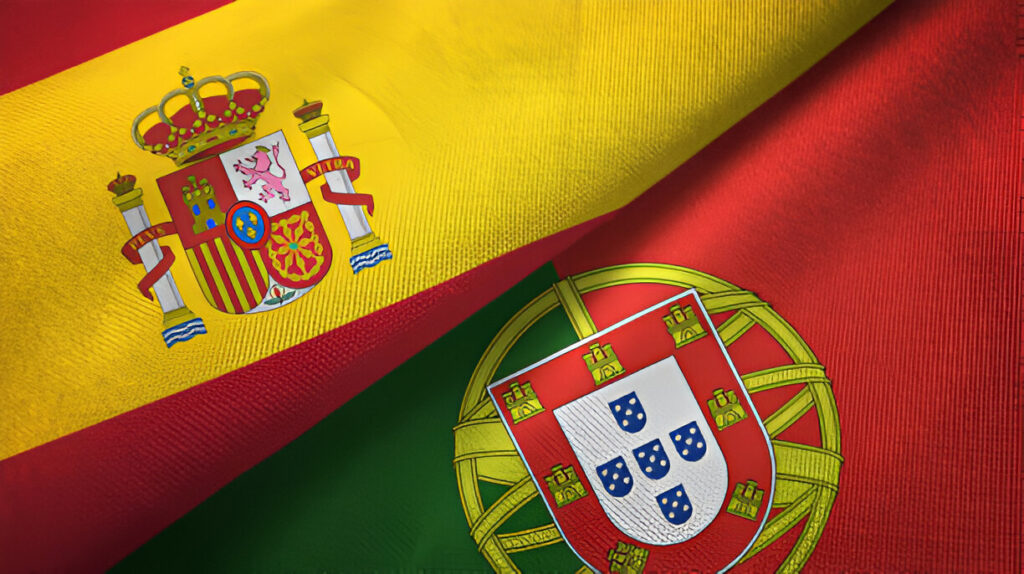ENGLISH SPEAKING Immigration
LAWYERS IN SPAIN AND PORTUGAL
Portuguese and Spanish citizenship offer exciting pathways to becoming part of Europe, but the processes and benefits differ.

Portuguese citizenship is often favored for its shorter residency requirement—you can apply after just five years—and flexibility in allowing dual citizenship.
On the other hand, Spanish citizenship offers a rich cultural heritage and a quicker route for those with ties to Latin America.
However, it usually requires ten years of residency and may require you to give up your current citizenship. By exploring the specific requirements and advantages of each, you can better decide which citizenship option aligns with your aspirations and lifestyle.
Portuguese and Spanish Citizenship – Comparing the Different Paths
When considering Portuguese and Spanish citizenship, it’s essential to compare each country’s various pathways to citizenship. Both Portugal and Spain provide unique routes to citizenship, and Knowing these differences can help you choose the best option for your needs.
Portuguese Citizenship:
- Residency Requirement: In Portugal, you can apply for citizenship after five years of legal residency. This is relatively short compared to many other countries. During this time, you must demonstrate your integration into Portuguese society and pass a basic language test.
- Dual Citizenship: Portugal allows dual citizenship, meaning you can hold Portuguese citizenship and another nationality. This flexibility is beneficial for maintaining ties with your original country.
- Citizenship by Descent: If you have Portuguese parents or grandparents, you might be eligible for citizenship through descent. This doesn’t require you to live in Portugal, but it does require proof of your Portuguese ancestry.
- Golden Visa: Portugal offers a Golden Visa program for investors, which grants residency through significant financial investments. You can apply for citizenship after five years of residency under this program.
Spanish Citizenship:
- Residency Requirement: Spain generally requires ten years of legal residency before you can apply for citizenship. However, this period is reduced to two years for citizens from Latin American countries, Andorra, the Philippines, and Equatorial Guinea. You must demonstrate your integration into Spanish society and pass language and cultural tests.
- Dual Citizenship: Spain has strict rules about dual citizenship. Generally, it would help to renounce your previous nationality to become a Spanish citizen, except for citizens from certain Latin American countries, Andorra, the Philippines, and Equatorial Guinea, who can hold dual citizenship.
- Citizenship by Descent: If you have Spanish parents or, in some cases, grandparents, you can apply for citizenship through descent. Proof of your Spanish lineage is required.
- Golden Visa: Spain’s Visa program requires a more extended residency period of ten years before you can apply for citizenship. This program allows investors to gain residency through significant economic contributions.
Choosing between Portuguese and Spanish citizenship depends on your situation, residency plans, investment goals, and whether you wish to retain dual nationality.
Essential Requirements to Prove Spanish Ancestry
To demonstrate your eligibility for Spanish citizenship by descent, you must provide proof of your Spanish lineage. The requirements include:

Proof of Parentage:
To confirm your relationship, you must present your birth certificate and the birth certificate or passport of your Spanish parents.
Grandparent Documentation:
If you claim citizenship through a grandparent, you’ll need to show their need to show their certificate and potentially the birth certificates of your parents and grandparents to establish the lineage.
Adoption Papers:
If a Spanish citizen adopted you, submit the official adoption certificate and any other relevant documents proving the adoption occurred before you turned 18.
Documents Needed for Spanish Citizenship by Descent
Gathering the correct documents is crucial for your application. Here’s What you’ll need:
Valid Passport:
Ensure your passport is up-to-date to validate your identity.
Birth Certificate:
Provide an official copy of your birth certificate and the birth certificates of any Spanish ancestors. These documents should be certified.
Marriage Certificates:
If applicable, include marriage certificates for your parents or grandparents. These help establish family connections.
Death Certificates:
If any of your Spanish ancestors have passed away, include their death certificates to verify their status.
Criminal Record Certificate:
To ensure you meet the character requirements, obtain a criminal record certificate from every country where you have lived since turning 18.
Eligibility and Requirements for Portuguese Citizenship
To apply for Portuguese citizenship by descent, you must meet specific eligibility criteria based on your Portuguese heritage. Here’s typically apply:

Children of Portuguese Parents:
If one of your parents is a Portuguese national, you are eligible for citizenship. This applies even if you were born outside of Portugal.
Grandchildren of Portuguese Nationals:
If one of your grandparents was Portuguese, you can apply for citizenship. This is often the case if your parents were born abroad to Portuguese parents and maintain their Portuguese citizenship.
Individuals Born Abroad to Portuguese State Employees:
If you were born outside Portugal to a Portuguese state employee serving abroad, you may qualify for citizenship.
Individuals with Portuguese Ancestry:
If you can demonstrate that you have Portuguese roots within two generations and that your ancestors maintained their Portuguese citizenship, you might be eligible. This requires proving a tangible connection to Portugal.
Essential Criteria for Portuguese Citizenship by Descent
To establish your eligibility for Portuguese citizenship, you need to meet certain criteria and provide specific documentation:
- Connection to the Community: You need to show a connection to Portugal. This could be through language proficiency or demonstrating that you’ve time in Portugal.
- Clean Criminal Record: You must provide proof of a clean criminal record from every country you have lived in since turning 18.
- No Connection to Terrorism: If you have any links to terrorism, you will not qualify for Portuguese citizenship.
Required Documents for Portuguese Citizenship Applications
Gathering the necessary documents is essential for your application. Here’s you’ll need:
- Birth Certificate: Provide your birth certificate and the certificate of the Portuguese parent or grandparent from whom you claim descent. Certified copies are required.
- Identification Documents: Include your passport or another valid photo ID. If you are under 14, this may be optional.
- Proof of Portuguese Ancestry: Submit the birth certificates of your Portuguese who have these grandparents. If you don’t have these documents, provide their full names, dates of birth, and other details to help officials locate their records.
- Marriage Certificate: If you are married or in a civil relationship with a Portuguese citizen, include your marriage certificate.
- Proof of Address: Provide a recent utility bill or bank statement to confirm your address.
- Foreign Marriages/Divorces: If your parents or grandparents were married or divorced outside of Portugal, you must register these details with the Portuguese civil registry.
How Long Does It Take to Meet Residency Requirements?
Knowing the residency requirements is crucial when applying for citizenship in Portugal or Spain. Each country has rules about how long you must live there before becoming a citizen. Here’s look at the residency requirements for both countries:
Portuguese Residency Requirements
To become a Portuguese citizen, you must have lived in Portugal for at least five years and have legal residency status. This relatively short period makes Portugal an attractive option for those seeking citizenship sooner. During these five years, you must show that you have integrated into Portuguese society, including basic Portuguese knowledge.
If you hold a Golden Visa obtained through investment, you can apply for Portuguese citizenship after five years of residency. This route also requires you to spend a minimum amount of time in Portugal each year, but it provides a fast-track option for investors.
Spanish Residency Requirements
Spain typically requires ten years of legal residency before you can apply for citizenship. This period allows the country to ensure applicants are well-integrated into Spanish society. During this time, you must provide evidence of your residence and pass language and cultural tests.
If you are from Latin American countries, Andorra, the Philippines, or Equatorial Guinea, you can apply for Spanish citizenship after just two years of legal residency. This shorter period reflects Spain’s Historical and cultural connections with these regions.
Residency for Golden Visa Holders
Spain also offers a Golden Visa program for investors, but the path to citizenship still requires a ten-year residency period. While the Golden Visa grants you residency and access to Spain, you must fulfill the ten-year requirement to become a citizen.
Knowing these residency requirements can help you decide which country process best suits your plans and needs.
Essential Information About Dual Citizenship Rules
Knowing the rules for dual citizenship is essential when considering whether to obtain citizenship in Portugal or Spain. Each country has its approach to dual citizenship, which affects whether you can simultaneously hold citizenship in multiple countries. Here’s a detailed look at the dual citizenship policies of Portugal and Spain.

Portuguese Dual Citizenship: Flexibility and Opportunities
Portugal has a flexible approach to dual citizenship, allowing individuals to hold multiple nationalities.
- Acceptance of Multiple Nationalities: Portugal permits dual citizenship, meaning you do not have to renounce your original nationality to become a Portuguese citizen. This flexibility is particularly advantageous if you want to maintain ties with your home country while benefiting from Portuguese citizenship.
- Dual Citizenship for Descendants: You can retain your other nationality if you are applying for Portuguese citizenship through descent, such as having Portuguese parents or grandparents. Portugal allows dual citizenship in these cases, enabling you to inherit Portuguese citizenship while keeping your existing citizenship.
- Golden Visa Program and Dual Citizenship: Dual citizenship is also allowed for those who obtain Portuguese citizenship through the Golden Visa investment program. Investors meeting the Golden Visa’s requirements can become Portuguese citizens without giving up their original nationality.
Spanish Dual Citizenship: Restrictions and Exceptions
Spain generally has stricter rules regarding dual citizenship compared to Portugal.
- General Requirement to Renounce Previous Nationality: Spain’s rule requires that you renounce your previous nationality when you become a Spanish citizen. This policy helps simplify legal processes by avoiding the complexities of holding multiple nationalities. Most applicants must give up their original citizenship to gain Spanish citizenship.
- Exceptions for Specific Countries: Spain’s rules have exceptions. Citizens from Latin American countries, Andorra, the Philippines, and Equatorial Guinea, are allowed to hold dual citizenship with Spain. These exceptions reflect the historical and cultural connections between Spain and these regions.
- Dual Citizenship by Descent: The general rule is to renounce previous citizenship for individuals obtaining Spanish citizenship through descent, such as having Spanish parents or grandparents. However, those from countries with special agreements may be permitted to hold dual citizenship.
How Language and Cultural Integration Differ?
Knowing the language and cultural integration requirements is crucial when pursuing citizenship in Portugal or Spain. Each country has expectations for how well you must integrate into society, which can affect your citizenship application process. Here’s A comparison of the language and cultural integration requirements for Portuguese and Spanish citizenship:
Portuguese Language and Cultural Integration Requirements
PortugaPortugal’sation requirements ensure that new citizens can effectively communicate and participate in Portuguese society.
- Language Proficiency Requirements: To apply for Portuguese citizenship, you must demonstrate basic proficiency in Portuguese. This usually involves passing a language test at the A2 level, a basic level of Knowing and communication. The test covers reading, writing, listening, and speaking skills. This requirement helps new citizens interact and integrate smoothly into daily life.
- Cultural Knowledge Expectations: Along with language skills, you must show some Knowing of Portuguese culture and society. This is typically assessed during the citizenship application process through questions about Portuguese history, customs, and values. While the cultural knowledge requirement is less extensive than in some other countries, it’s essential to demonstrate your commitment to becoming a part of Portuguese society.
Spanish Language and Cultural Integration Requirements
Spain has more stringent language proficiency and cultural integration requirements than Portugal.
- Language Proficiency Requirements: Spain requires a higher level of language proficiency for citizenship. You must pass a Spanish language test at the B1 level, which signifies an intermediate knowledge of the language. This test assesses your ability to communicate in various social, academic, and professional contexts. You must demonstrate a firmer grasp of the language than Portuguese.
- Cultural Knowledge Expectations: Spain evaluates your knowledge of Spanish history, politics, and culture. It covers topics such as Spanish constitutional values, the structure of the government, and major historical events. Successfully passing this test is essential to prove that you understand and are ready to participate fully in Spanish society.
Key Differences Between Portugal and Spain
This country requires basic Portuguese language skills at the A2 level and some general cultural knowledge. The integration process is straightforward, focusing on essential communication and cultural knowledge.
Spain has more demanding requirements, including a B1 level of Spanish proficiency and a detailed cultural and civic knowledge test. The integration process is more rigorous, reflecting Spain’sSpain’sis on a deeper Knowing of its language and culture.
These language and cultural integration requirements differences can significantly impact your decision about which country’s process best suits your abilities and goals.
5 Benefits of European Citizenship in Portugal and Spain
European citizenship offers a wide range of advantages, reflecting the shared values and freedoms of the European Union. Here is a look at what European citizenship can offer, explicitly focusing on Portugal and Spain.
European citizenship has numerous advantages, particularly if you hold citizenship in Portugal or Spain. This status allows you to enjoy a range of freedoms and benefits across the European Union, making life easier and more rewarding in many ways. Here’s a detailed look at the key benefits.

Freedom of Movement Across Europe
- Travel and Residence Flexibility: With European citizenship, you can travel freely across all EU member states, including Portugal and Spain. You don’t have additional visas to enter or stay in these countries, allowing you to live, work, or study wherever you choose within the EU.
- Simplified Travel within the Schengen Area: European citizens benefit from the Schengen Agreement, which enables easy travel across borders within the Schengen Area without frequent passport checks. This agreement includes most EU countries and simplifies moving from one country to another.
Comprehensive Healthcare Access
- Healthcare Services in Portugal and Spain: As a European citizen, you can access the public healthcare systems in Portugal and Spain. Both countries provide extensive medical services funded by their public health systems. This means you can access general practitioners, specialists, and hospital treatments at reduced or no cost.
- Emergency Medical Coverage Across the EU: The European Health Insurance Card (EHIC) provides emergency medical coverage across all EU countries. This card ensures that you can receive necessary medical treatment while traveling or living abroad, helping to reduce your out-of-pocket healthcare costs.Enhanced Educational Opportunities
- Studying at EU Universities: European citizenship allows you to study at universities throughout the EU, including Portugal and Spain. You often benefit from lower tuition fees compared to non-EU students and have access to high-quality education and research facilities.
- Participating in Erasmus+ Programs: The Erasmus+ program facilitates student exchanges and internships across the EU. This initiative supports students in gaining international experience, enhancing their education, and fostering cultural exchange.
Expanded Employment and Business Opportunities
- Work Rights Across the EU: Citizens of Portugal and Spain can work in any EU member state without needing additional work permits. This opens up many European job opportunities and enhances career prospects by allowing you to work freely in various countries.
- Starting and Running a Business in the EU: European citizenship enables you to establish and run a business in any EU country. You benefit from the single market, which offers access to a large consumer base and facilitates cross-border trade, making expanding and operating your business across the EU more accessible.
Social and Legal Protections
- Legal Rights and Protections: European citizenship provides robust legal protections, including protection against discrimination and access to social security benefits. It also offers avenues for legal recourse if your rights are infringed upon.
- Consular Assistance Abroad: If you encounter issues while traveling or living outside your home country, you can seek assistance from any EU embassy or consulate. This support adds an extra layer of security and help during your travels.
High Quality of Life
- Living Standards in Portugal and Spain: Portugal and Spain are known for their high living standards, including excellent infrastructure, vibrant cultural scenes, and favorable climates. European citizenship allows you to fully enjoy these benefits and the overall quality of life in these countries.
- Cultural and Community Engagement: Being a citizen of Portugal or Spain allows you to engage with these cultural traditions and community activities. You can immerse yourself in local customs, enjoy cultural events, and build connections within these vibrant communities.
Marfour International Law Firm specializes in helping clients navigate the complexities of acquiring European citizenship, including Portuguese and Spanish citizenship by descent. Their expertise ensures a smooth application process and guidance tailored to your needs.
FAQs
Here are some frequently asked questions about European citizenship benefits, particularly in Portugal and Spain. These answers should clarify any uncertainties about what you can expect as a European citizen.
What are the main advantages of holding European citizenship in Portugal or Spain?
European citizenship offers the freedom to travel, live, and work across EU countries, access to comprehensive healthcare and education systems, and enhanced employment and business opportunities. It also provides legal protections and high living standards in Portugal and Spain.
Can European citizenship be passed on to children?
Yes, European citizenship can generally be passed on to children, especially if they are born European citizens. This often includes the right to live, work, and study within the EU, extending the benefits to the next generation.
How does European citizenship affect my tax obligations?
While European citizenship provides many benefits, it does not automatically alter your tax obligations. You must comply with the country’s rules and, depending on local regulations, declare income for your home country.
Are there any restrictions or obligations with European citizenship?
European citizens must adhere to the laws and regulations of the EU member state where they reside. This includes fulfilling residency requirements and abiding by local legal and financial regulations.
How can I apply for European citizenship if I have Portuguese or Spanish heritage?
If you have Portuguese or Spanish ancestry, you may apply for citizenship by descent. The process involves proving your lineage through official documents and meeting specific eligibility criteria. It’s advisable to consult with legal experts to navigate the application process smoothly.
Conclusion
European citizenship offers significant benefits, including freedom of movement, access to healthcare, educational opportunities, and robust legal protections. For those with Portuguese or Spanish heritage, the path to citizenship can open doors to a higher quality of life and expanded opportunities across the EU. Knowing these advantages and the application process can help maximize your European citizenship.
WE ARE THE CITIZENSHIP LAWYERS YOU NEED IN SPAIN
The Spanish passport has numerous advantages and, as a foreigner residing in Spain, you can enjoy them by applying for it and acquiring Spanish citizenship.
HOW TO OBTAIN IT? WHAT ARE THE REQUIREMENTS?
In order to apply for a Spanish passport for the first time, you must take into account that certain documents and requirements must be collected.
You will have to make an appointment at the police station and present the following documents:
-
Printed application document, duly completed and with the applicant’s signature.
-
Proof of payment of the corresponding consular fee.
-
Recent photos, 4×4 size, white background, and front view.
-
To have a valid identity document, in case of being a minor, the documents of the parents, original and copy, must be carried.
-
Birth certificate of the applicant, original and copy issued by the Civil Registry.
-
Proof of Spanish nationality.
BENEFITS:
With your Spanish passport, you will be able to enjoy the following benefits, among others:
-
You will be able to leave and enter Spain freely as many times as you wish, as long as your passport is valid.
-
Freedom of access, movement, and work in European destinations: being a citizen of the European Union, thanks to the Spanish nationality, allows you to “move and reside freely within the territory of the Member States”, according to Directive 2004/38/EC.
-
You will also be entitled to dual nationality and two passports if you come from a Spanish-American country, Andorra, Equatorial Guinea, the Philippines, or Portugal, or if you are of Sephardic Jewish descent. Nationals of other countries will have to renounce the citizenship of their country of origin to acquire Spanish citizenship and obtain a Spanish passport.
-
Access to Public Health Care.

Managing Partner- Head of immigration Department
